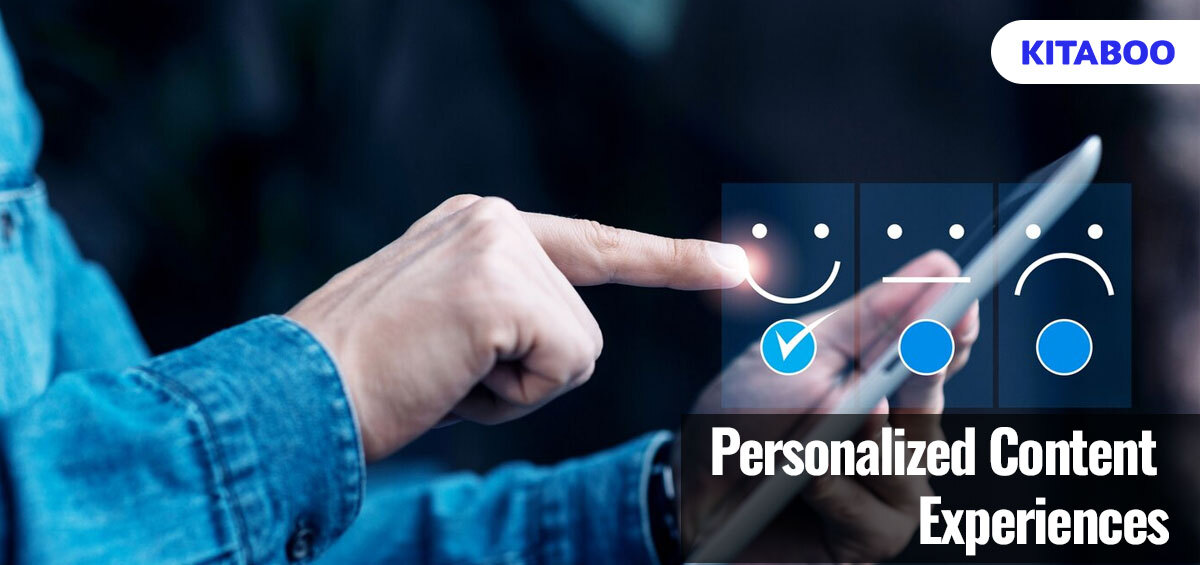Have you, as a K12 publisher, ever been in a situation where no matter what you do, you don’t seem to get the results you expect? You could have a great distribution strategy, a solid financial plan and yet something falls short.
If this is a scenario that sounds familiar, we think we might be able to help.
In a world where attention spans are as short, and competition is fierce, personalized content experiences become paramount.
Content does more than just serve your audiences. It works as a bridge that connects end users to your brand. Considering that the average attention span in our digitally driven world is now less than that of a goldfish, at a mere eight seconds, personalization is no longer a luxury but a necessity.
This is not just about grabbing attention; it’s about creating a meaningful connection that turns casual readers into loyal followers. In this blog, we’ll explore the strategies and insights that can help you tailor your publishing efforts to meet the content needs of diverse audiences, ensuring your content not only captures attention but sustains it.
Table of Contents:
I. The Need for Personalization and Empathy-led Content in 2024
II. Strategies to Create Personalized Content Experiences for Diverse Audiences
- Understand Your Audience
- Refine and Segment Your Audience
- Personalize Content
- Customize Content Formats
III. Final Thoughts: The Importance of Personalization in a Digital Content Strategy
IV. How KITABOO Enhances Personalized Content Creation for Publishers
The Need for Personalization and Empathy-led Content in 2024
Picture a scenario where a K12 publisher is developing educational materials for a diverse classroom. The conventional approach might involve generic textbooks that broadly cover the curriculum.
However, by embracing personalization, this publisher could create interactive digital content that adapts to different learning styles and paces. This would ensure that each student, regardless of their background or abilities, finds the material engaging and comprehensible.
Empathy-led content goes a step further.
It’s not just about surface-level customizations; it’s about deeply understanding and addressing the emotional and intellectual needs of the audience.
For instance, when creating resources for educators, a publisher might integrate tools and content that specifically address the challenges teachers face in today’s classrooms, such as incorporating technology or managing content for diverse audiences‘ needs. This approach shows a deep understanding of the educators’ daily realities, fostering a stronger, more meaningful relationship between the publisher and its professional clientele.
By focusing on personalization and empathy, publishers can not only enhance learning outcomes but also establish themselves as trusted, forward-thinking leaders in the field of educational content.
Strategies to Create Personalized Content Experiences For Diverse Audiences
Navigating the intricate landscape of diverse audiences requires a strategic approach to content creation. Here are some key strategies to develop personalized content experiences that resonate with a broad spectrum of users:
1. Understand Your Audience
This is the cornerstone of any successful content strategy, especially in a landscape where audience preferences are as diverse as they are dynamic.
Publishers in content creation recognize the importance of investing time and resources in researching and analyzing audience demographics, preferences, and behaviors. They can use digital publishing tools such as KITABOO, that share data, insights and analytics, to better understand their audiences.
This approach enables them to craft content that resonates more deeply, addressing the reader’s interests, pain points, and aspirations. Companies like Netflix and Amazon set a high bar with their advanced data analytics and personalized recommendation algorithms. They meticulously analyze data points like watch history, user ratings, and search behaviors to tailor recommendations, thereby enhancing user engagement and conversion rates.
2. Refine and Segment Your Audience
For publishers, segmenting your audience is a crucial step in delivering content that truly resonates. After gaining a comprehensive understanding of your audience, you can divide them into distinct groups, each defined by specific characteristics or preferences.
Take the K12 sector as an example. For younger readers, the focus could be on interactive, visually engaging content, while for older students, in-depth, subject-specific materials might be more appropriate.
Similarly, you need to understand how much knowledge a child at any given age can easily absorb. Mental capacities change very quickly in the K12 stage, and refining your targeting can become challenging.
3. Personalize Content
With your audience segmented, the next step is to personalize your content.
Use dynamic content elements such as personalized reading lists, suggestions for related topics, or tailored educational resources, based on age-group.
Give your content compelling headlines that appeal to the target group. Use language that is easy for them to understand. Layout and colors can also be used to captivate their attention, while accurately reflecting the content.
4. Customize Content Formats
Publishers must recognize that their audiences consume content in a variety of ways. Some readers might prefer the immersive experience of an eBook, while others might engage more with audiobooks.
Younger students may prefer to engage with animations and read-along features. Older students might enjoy quizzes and videos more.
To customize content formats, publishers must pay close attention to engagement metrics, conversion rates, and user feedback. By monitoring how different content formats perform among specific audience segments, publishers can continuously refine and optimize their strategies.
Final Thoughts: The Importance of Personalization in a Digital Content Strategy
In an era where the digital landscape is saturated with content, personalization stands out as a crucial differentiator. By meticulously tailoring content to align with the distinct preferences and needs of your audience, you create a pathway to capture their attention, cultivate trust, and deepen engagement.
Embrace personalization not as a one-time task but as a continuous, evolving process. As you fine-tune your approach, you’ll witness how personalized content experiences not only foster meaningful connections but also significantly enhance the effectiveness of your digital content strategy.
How KITABOO Enhances Personalized Content Creation for Publishers
KITABOO, is a cutting-edge digital textbook platform that offers seamless solutions for creating personalized content tailored to diverse audiences. By leveraging KITABOO’s interactive digital publishing capabilities, publishers can create, enhance, and securely deliver content across various devices and operating systems.
With features like advanced analytics, easy user management, and the innovative AI-powered Learning Assistant, K.AI, KITABOO empowers K12 publishers to understand and cater to their audience’s unique preferences and learning styles, ensuring a more personalized and effective educational experience.
To know more, write to us at KITABOO@hurix.com.
Discover How An Ebook Conversion, Publishing & Distribution Platform Can Help You
Kitaboo is a cloud-based content platform to create-publish & securely distribute interactive mobile-ready ebooks.
You May Also Like
-
How KITABOO Helps Create Stunning Rich Media Resources
Blog,Digital Publishing,eBook solution / February 21, 2024







